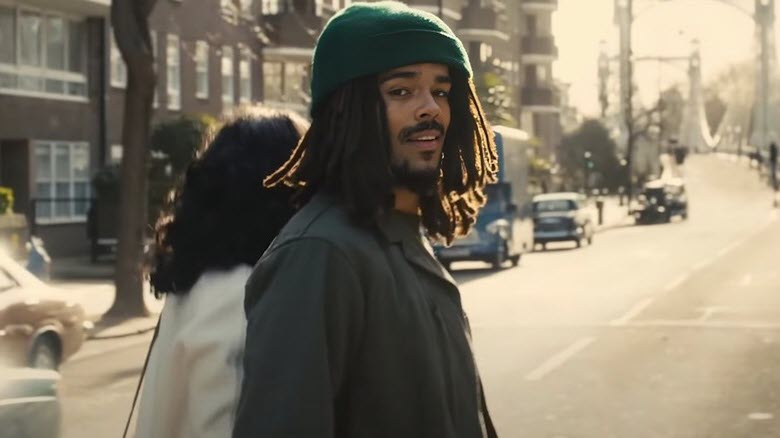Bob Marley is more than just a musician—he’s a legend, a prophet of peace, love, and revolution whose music continues to inspire generations worldwide. With his unmistakable voice, powerful lyrics, and infectious reggae rhythms, Marley transformed the global music scene, making reggae a universal language of hope and unity. From anthems of resistance to soulful ballads of love and redemption, his songs remain as relevant today as they were decades ago.
But which of his timeless masterpieces stand above the rest? In this article, we dive into the Top 10 Most Popular Bob Marley Songs of All Time, celebrating the tracks that have defined his legacy and captivated millions. Whether you’re a lifelong fan or just discovering his music, this list will take you on a journey through his greatest hits—songs that continue to set the world ablaze with their messages of freedom, resilience, and peace.
Get ready to feel the rhythm, embrace the spirit of reggae, and relive the magic of Bob Marley’s most iconic tracks. From “No Woman, No Cry” to “One Love”, these songs are more than just music—they’re a movement. Let’s count them down! 🎶🔥
1. “Three Little Birds” (1977)

Released on the Exodus album in 1977, “Three Little Birds” is one of Bob Marley’s most iconic songs, brimming with positivity and reassurance. The song’s famous chorus, “Don’t worry about a thing, ’cause every little thing is gonna be alright,” has become a universal mantra of hope that resonates across generations. Inspired by Marley’s love for nature, particularly the birds he often saw outside his window, the song exudes a calming rhythm and uplifting message. It’s a perfect example of Marley’s gift for blending simple, heartfelt lyrics with profound meaning, ensuring its place as a timeless classic.
2. “Redemption Song” (1980)

“Redemption Song,” from Marley’s final studio album Uprising, is a profoundly introspective and politically charged track. Released in 1980, this acoustic ballad stands apart from Marley’s usual reggae style, showcasing his stripped-back artistry. Drawing inspiration from the words of Marcus Garvey, the song serves as a call for liberation, urging listeners to “emancipate yourself from mental slavery.” Marley’s voice, filled with raw emotion, delivers a powerful message of freedom and self-empowerment. Released as his last single before his passing, “Redemption Song” carries immense significance, encapsulating Marley’s legacy as both a revolutionary artist and a visionary.
3. “No Woman, No Cry” (1974)

Released as part of Bob Marley’s Natty Dread album in 1974, “No Woman, No Cry” is one of his most enduring and heartfelt songs. Originally written as a message of comfort to a woman facing hardship, the song skillfully weaves themes of resilience, community, and hope into its fabric. Set against the backdrop of life in Kingston, Jamaica, it carries an emotional weight that transcends its simple lyrics. The live version, which was released on the Live! album in 1975, became iconic for its raw, emotional delivery and the powerful connection Marley formed with his audience. With its soulful organ riff, steady rhythm, and Marley’s unmistakable vocals, the song is a beacon of perseverance and love, making it an eternal reggae anthem.
4. “Buffalo Soldier” (1983)

Released posthumously in 1983 as part of the Confrontation album, “Buffalo Soldier” pays tribute to African-American soldiers who fought in the U.S. Army during the 19th century. Using their story as a metaphor for the struggles of African descendants, the song conveys themes of resilience, survival, and defiance. With its catchy groove and memorable “woy yoy yoy” refrain, the track is as engaging as it is insightful. Bob Marley’s ability to blend cultural, historical, and political themes into his music shines through in this unforgettable anthem.
5. “One Love / People Get Ready” (1977)

Also from the Exodus album, “One Love / People Get Ready” is an exuberant anthem for unity and peace. Merging Marley’s message of love with Curtis Mayfield’s “People Get Ready,” the song creates a beautiful fusion of reggae and soul. Its infectious rhythm and joyous call for togetherness encourage listeners to embrace harmony, transcending boundaries of race, religion, and nationality. Celebrated worldwide, it has become both a cultural and spiritual hymn, a powerful reminder that humanity’s shared love is our greatest strength.
6. “I Shot the Sheriff” (1973)

“I Shot the Sheriff,” featured on the Burnin’ album in 1973, is one of Marley’s most iconic and thought-provoking songs. The track tells the story of a man who has been accused of murder, blending themes of personal freedom, resistance to authority, and societal injustice. With its infectious rhythm and Marley’s powerful delivery, the song became a hit, further amplified by Eric Clapton’s 1974 cover. Though the song’s narrative is open to interpretation, it remains a poignant symbol of standing up against oppression and challenging the status quo.
7. “Get Up, Stand Up” (1973)

Co-written by Bob Marley and Peter Tosh, “Get Up, Stand Up” was first released on the Burnin’ album in 1973. It serves as a powerful anthem of resistance, urging people to fight for their rights and stand up against oppression. Inspired by Marley’s time in Haiti, where he witnessed poverty and injustice firsthand, the song’s fiery rhythm and resolute lyrics make it one of his most politically charged tracks. Its universal message of empowerment continues to inspire freedom fighters and activists around the world, cementing its place as a rallying cry for justice.
8. “Could You Be Loved” (1980)

“Could You Be Loved,” from the Uprising album in 1980, blends reggae with elements of disco and funk, creating a genre-defying, danceable hit. With its infectious beat and uplifting lyrics, the song encourages listeners to embrace love and live authentically. Written during a plane flight, the track showcases Marley’s creativity and ability to transcend musical boundaries, reaching a global audience. Its lively energy and powerful message of love make “Could You Be Loved” a joyous and enduring anthem in Bob Marley’s vast catalog of hits.
9. “Is This Love” (1978)

“Is This Love,” released on the Kaya album in 1978, is one of Bob Marley’s most tender and romantic tracks. With its dreamy melody and heartfelt lyrics, the song expresses pure love and devotion. The relaxed, laid-back rhythm complements Marley’s sincere vocal delivery, making it a timeless declaration of affection. “Is This Love” has become a staple for weddings and romantic celebrations, and its universal appeal has secured its place as one of reggae’s most iconic love songs.
10. “Jamming” (1977)

“Jamming,” from Marley’s Exodus album, is an upbeat celebration of music, love, and unity. Its vibrant rhythm and infectious groove have made it a favorite at parties and gatherings, but the deeper message of the song is about coming together through the joy of music. Marley’s call to “jam” invites listeners not only to enjoy the music but to embrace life’s simple pleasures and foster a sense of communal belonging. The track embodies the spirit of reggae and remains one of Marley’s most enduring and beloved songs.







